 W
WVehicles for human transport that have two wheels and require balancing by the rider date back to the early 19th century. The first means of transport making use of two wheels arranged consecutively, and thus the archetype of the bicycle, was the German draisine dating back to 1817. The term bicycle was coined in France in the 1860s, and the descriptive title "penny farthing", used to describe an "ordinary bicycle", is a 19th-century term.
 W
WBeistegui Hermanos S.A. (BH) is a Spanish bicycle manufacturer founded in 1909 to make guns. In 1919, after World War I, BH began making bicycles. Prior to the Spanish Civil War, Beistegui Hermanos also produced firearms, specifically copies of the Ruby pistol and Mauser C96.
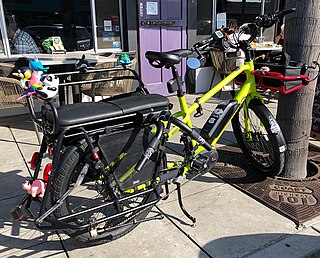 W
WBenno Bikes is a bicycle brand and manufacturer of electric bicycles, cargo and comfort bikes, as well as cargo accessories and bicycle parts. It was founded in 2015 by Benno Baenziger — who made a name and reputation by co-founding with Jeano Erforth, Electra Bicycle company, a modern electric bike manufacturer, in Del Mar, California. These electric bicycles are a crossover between comfort bikes and cargo bikes. A sobriquet for the concept of these bikes has been described and trademarked as "etility" by Benno.
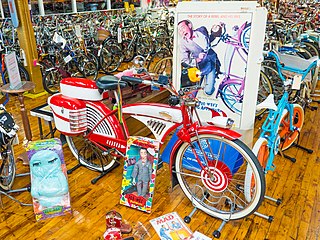 W
WBicycle Heaven is the largest transportation museum in the world dedicated to bicycles. The museum was founded by Craig Morrow and comprises his personal collection gathered over decades. It is located in Pittsburgh, Pennsylvania.
 W
WThe bicycle had a significant impact on the lives of women in a variety of areas. The greatest impact the bicycle had on the societal role of women occurred in the 1890s during the bicycle craze that swept American and European society. During this time, the primary achievement the bicycle gained for the women's movement was that it gave women a greater amount of social mobility. The feminist Annie Londonderry accomplished her around-the-globe bicycle trip as the first woman in this time. Due to the price and the various payment plans offered by American bicycle companies, the bicycle was affordable to the majority of people. However, the bicycle impacted upper and middle class white women the most. This transformed their role in society from remaining in the private or domestic sphere as caregivers, wives, and mothers to one of greater public appearance and involvement in the community.
 W
WThe bike boom or bicycle craze is any of several specific historic periods marked by increased bicycle enthusiasm, popularity, and sales.
 W
WCritical Mass is a form of direct action in which people meet at a set location and time and travel as a group through their neighbourhoods on bikes. The idea is for people to group together to make it safe for each other to ride bicycles through their streets, based on the old mantra: there's safety in numbers.
 W
WGi FlyBike is a foldable electric bicycle that launched its successful crowdfunding campaign in 2015. It can reach up to 20 mph on its full electric assistance. Crafted from recyclable aircraft grade aluminum alloy, the bicycle is currently being manufactured with an estimated global delivery date in September 2017.
 W
WGocycle is an electric bicycle manufactured by Karbon Kinetics Limited, a company founded in 2002 by Richard Thorpe, who set out to create the world's best urban electric bike. Thorpe is an industrial designer who once worked at the racing car company McLaren. The Gocycle has interchangeable quick release wheels, a fully enclosed chain, gearing and cabling, a moulded magnesium frame and wheels and a flat pack storage and transport system, in which the bicycle folds up and can be carried in a case. The electric motor is powered by a rechargeable lithium ion battery.
 W
WThe Great Mountain Biking Video is a mountain biking instructional videotape, produced in 1987 and released in 1988 by San Diego, USA video production company New & Unique Videos.
 W
WThe bicycle originally reached New Zealand in the 1860s in the form of the velocipede, also known as the 'boneshaker'. These bikes, as elsewhere, soon evolved into the elegant 'high wheelers', known today as penny-farthings. Popular among wealthy young men, these offered adventure and speed, but were also dangerous due to the lack of modern features like efficient brakes. Additionally the fact that they were useless on the rough and hilly roads of most of the country, ensured that they were seldom used for anything other than sport and recreation.
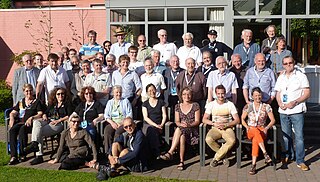 W
WThe International Cycling History Conference (ICHC) is an annual event devoted to applying academic rigor to the history of bicycles and cycling. The first conference was held in Glasgow, Scotland in 1990. The proceedings of each conference are published afterwards.
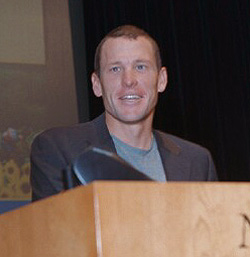 W
WFor much of the second phase of his career, American cyclist Lance Armstrong faced constant allegations of doping. Armstrong consistently denied allegations of using performance enhancing drugs until a partial confession during a broadcast interview with Oprah Winfrey in January 2013.
 W
WThe Massachusetts Bicycle Club (est.1879) was a cycling club in Boston, Massachusetts.
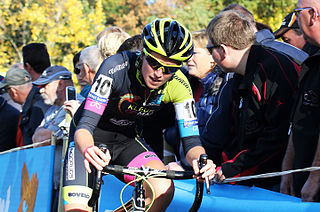 W
WMotor doping, or mechanical doping, in competitive cycling terminology, is a method of cheating by using a hidden motor to help propel a racing bicycle. The term is an analogy to chemical doping in sport, cheating by using performance-enhancing drugs. As a form of "technological fraud" it is banned by the Union Cycliste Internationale, the international governing body of cycling.
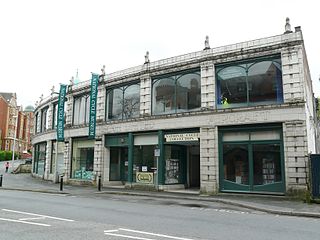 W
WThe National Cycle Museum for the UK is a collection of bicycles through the ages established in 1981 in premises on the estate of Belton House, near Grantham. After the National Trust were gifted the house the museum was without premises until a new location at Lincoln was offered. Mr James Maynard, Edward Skeet and Anthony Pickering took on the running of the museum after the originator and curator, Raymond Fixter died. After a highly successful number Of years in Lincoln, the City of Lincoln council ceased sponsorship and new premises were sought. In 1997 the Welsh Tourist board saw the opportunity of combining three collections [Tom Norton, David Higman and the National Cycle Museum] and offered premises which to this day are located in Llandrindod Wells, [[Wales] Containing around 250 bicycles from 1818 to 2018, including a large collection of penny-farthings and solid-tyred safety bicycles, as well as cycling books, accessories and paraphernalia.
 W
WThe penny-farthing, also known as a high wheel, high wheeler or ordinary, was the first machine to be called a "bicycle". It was popular in the 1870s and 1880s, with its large front wheel providing high speeds and comfort.
 W
WA plastic bicycle is a bicycle constructed from plastic or a plastic composite material, rather than from metal.
 W
WAlbert Augustus Pope was a Brevet Lieutenant-Colonel in the Union Army. He was an importer, promoter, and manufacturer of bicycles, and a manufacturer of automobiles.
 W
WThe Raleigh Bicycle Company is a British bicycle manufacturer based in Nottingham, England and founded by Woodhead and Angois in 1885. Using Raleigh as their brand name, it is one of the oldest bicycle companies in the world. After being acquired by Frank Bowden in December 1888, it became The Raleigh Cycle Company, which was registered as a limited liability company in January 1889. By 1913, it was the largest bicycle manufacturing company in the world. From 1921 to 1935, Raleigh also produced motorcycles and three-wheel cars, leading to the formation of Reliant Motors. Raleigh bicycle is now a division of the Dutch corporation Accell.
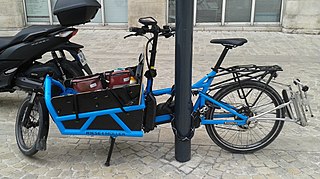 W
WRiese & Müller is a bicycle firm in Darmstadt, Germany founded by Markus Riese and Heiko Müller. It designs and makes suspended bicycles. Frames are produced by companies such as Pacific Cycles, Taiwan. All of their bikes are assembled by hand in Germany.
 W
WThe Schwinn Bicycle Company was founded by German-born mechanical engineer Ignaz Schwinn (1860–1948) in Chicago in 1895. It became the dominant manufacturer of American bicycles through most of the 20th century. After declaring bankruptcy in 1992, Schwinn has since been a sub-brand of Pacific Cycle, owned by the multi-national conglomerate, Dorel Industries.
 W
WIgnaz Schwinn was a designer, a founder, and the eventual sole owner of the Schwinn Bicycle Company.
 W
WSuperpedestrian Inc., is a transportation robotics company based in Cambridge, Massachusetts, that develops electrified and AI technologies for micromobility vehicles. The company runs the LINK e-scooter sharing program, which is active in 30 cities across the US and Europe.
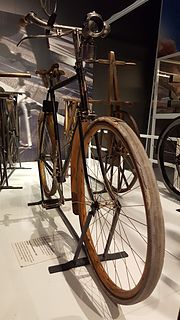 W
WThe Svea Velocipede was an early bicycle type invented in the 19th century by the Swedish brothers Fredrik Ljungström and Birger Ljungström.
 W
WThe Valley Preferred Cycling Center (VPCC), also known as the Lehigh Valley Velodrome or simply T-Town, is a professional cycling center and a velodrome located in Breinigsville, Pennsylvania. It serves as the Lehigh Valley's main track cycling stadium. The velodrome is operated by a non-profit 501(c)(3) organization Velodrome Fund., Inc that promotes competitive cycling, youth fitness, and adult wellness activities for the Lehigh Valley. Over the years, the velodrome hosted various cycling championships. VPCC is the home of the World Series of Bicycling. The Velodrome annually hosts the USA Cycling Elite Nationals qualifying event. The center also features a Cycling Hall of Fame. Over the past 40 years, the center introduced tens of thousands of people to cycling, producing over 140 national champions, seven world champions, and three Olympic medalist. Marty Nothstein, a three-time world champion in track events and an Olympic gold and silver medalist, is no longer the executive director of Valley Preferred Cycling Center.
 W
WThe Velo-Dog was a pocket revolver originally created in France by René Galand, son of Charles-François Galand in the late 19th century as a defense for cyclists against dog attacks. The name is a compound word composed of "velocipede" and "dog".
 W
WFrank W. Weston (1843–1911) was an English-born and trained architect who practiced in Portland, Maine and Boston, Massachusetts. He also invested in the bicycle industry and promoted cycling as a sport. He was the co-founder of the Boston Bicycling Club is known as the "father of American bicycling."